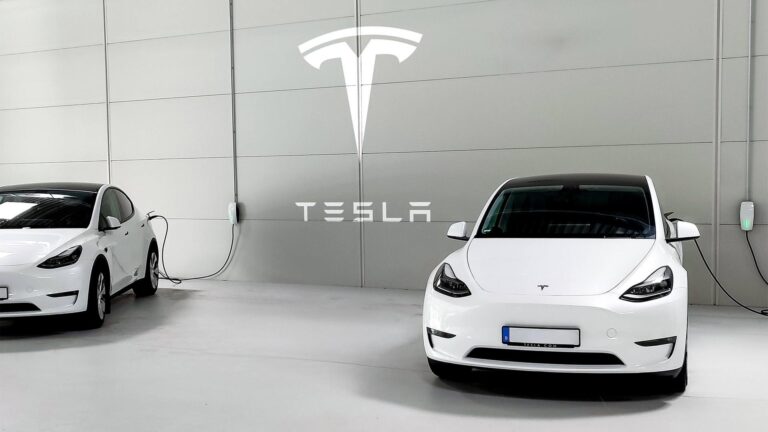Tesla’s car sales in Germany continued their downward trend in June, according to data reported by Reuters. The electric vehicle giant, which has positioned itself as a leader in the EV market, faced declining demand amid intensified competition and shifting consumer preferences. This latest dip in Tesla’s German sales raises questions about the company’s growth strategy in one of Europe’s key automotive markets.
Tesla’s German Market Shares Shrink Amid Growing Competition
In June, Tesla experienced a noticeable decline in its German market share as local and international competitors gain traction. Despite being a pioneer in electric vehicles, Tesla’s sales figures reveal a downward trend, attributed mostly to the surge of new EV models introduced by established German automakers. Volkswagen, BMW, and Mercedes-Benz have intensified their efforts, launching competitively priced electric variants that resonate more effectively with the German consumer base. Analysts highlight that Tesla’s previously unmatched brand allure is now challenged by these homegrown players who emphasize range, technology, and affordability.
Market dynamics are shifting rapidly, creating a more fragmented EV landscape in Germany. Tesla’s shrinking foothold is evident when analyzing the monthly registration data alongside competitors:
| Brand | June 2024 EV Registrations | Market Share (%) |
|---|---|---|
| Tesla | 5,200 | 22 |
| Volkswagen | 6,800 | 29 |
| BMW | 4,100 | 17 |
| Mercedes-Benz | 4,000 | 16 |
| Others | 2,700 | 16 |
- Volkswagen: Leveraging aggressive pricing and extensive charging infrastructure.
- BMW: Targeting premium EV buyers with innovative designs.
- Mercedes-Benz: Emphasizing luxury and advanced technology.
Factors Driving Decline in Tesla Sales in Germany Explored
Multiple factors have contributed to the recent downturn in Tesla’s car sales across the German market. One of the primary challenges is the intensifying competition from both established German automakers and new electric vehicle (EV) startups, who have launched compelling alternatives that appeal more to local consumers. Additionally, supply chain disruptions and increased production costs have led to longer delivery times and higher prices, which deter potential buyers at a time when economic uncertainty is growing. Consumer incentives for EVs have also fluctuated, creating an inconsistent purchasing environment for buyers evaluating their options.
Market dynamics and regulatory shifts further compound Tesla’s struggles. The evolving regulatory landscape in Germany, including stricter safety and environmental regulations, has necessitated adjustments in Tesla’s lineup and operations, affecting availability. Meanwhile, consumer preferences are shifting towards affordable compact EVs with established dealership networks, where Tesla’s limited physical presence puts it at a disadvantage. Below is a brief overview of the key challenges Tesla faces in this market:
- Increasing competition: Established brands offering new EV models
- Supply chain constraints: Longer delivery times impacting buyer patience
- Fluctuating incentives: Less predictability in government subsidies
- Local market preferences: Favoring smaller, affordable vehicles
- Regulatory hurdles: Compliance with stricter national standards
| Factor | Impact on Sales |
|---|---|
| Competition | High |
| Supply Delays | Moderate |
| Incentives | Variable |
| Consumer Preferences | Increasingly Challenging |
| Regulatory | Significant |
Strategic Recommendations for Tesla to Reclaim Market Position
To counteract the ongoing decline in German car sales, Tesla must prioritize enhancing its local manufacturing capabilities. By expanding production facilities within Germany, Tesla can reduce import-related delays and costs, making its vehicles more competitively priced against domestic brands. Additionally, investing in localized R&D centers focused on adapting models to European consumer preferences will help Tesla regain market traction. Strengthening partnerships with German suppliers to ensure smoother supply chains will also be crucial in maintaining production agility during fluctuating demand periods.
Further strategic actions include:
- Launching marketing campaigns emphasizing sustainability and performance tailored to the German audience.
- Expanding after-sales service networks to improve customer satisfaction and loyalty.
- Offering competitive financing and leasing options to increase accessibility.
- Accelerating software updates that enhance vehicle features and safety, differentiating Tesla from rivals.
| Strategic Focus | Projected Impact |
|---|---|
| Localized Production | Reduced lead times, cost advantages |
| Targeted Marketing | Increased brand awareness and demand |
| Expanded Service | Higher customer retention |
| Flexible Financing | Broadened buyer base |
To Conclude
As Tesla’s German car sales continue to decline in June, the company faces mounting challenges in maintaining its foothold in Europe’s largest automotive market. Industry analysts will be closely watching how Tesla responds to increased competition and shifting consumer preferences in the coming months. With Germany’s automotive landscape evolving rapidly, the electric vehicle maker’s ability to adapt will be critical to its future success in the region.




